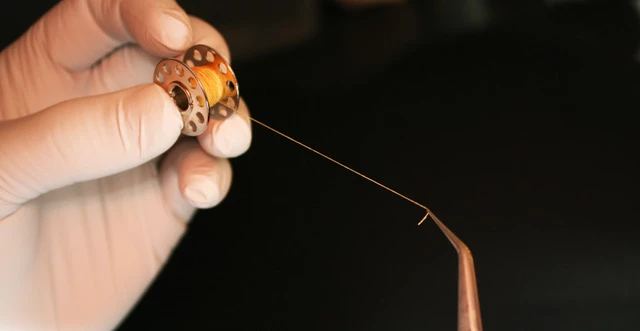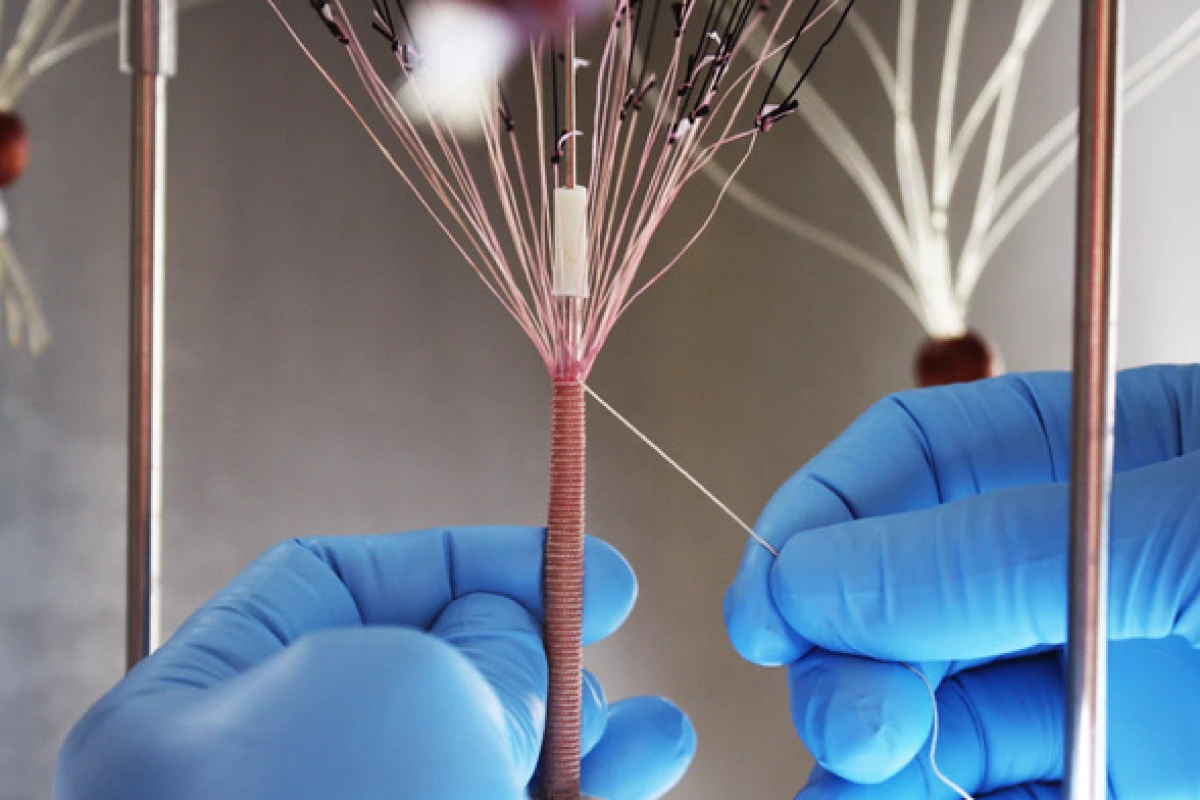When a damaged blood vessel has to be replaced, it's important that the replacement be well-tolerated by the body. And while bioprinted blood vessels are one possibility, French scientists are now working on weaving the things out of collagen yarn.
Led by researcher Nicolas L'Heureux, a team at the Inserm institute – aka the French National Institute of Health and Medical Research – started by lab-cultivating human cells, which in turn produced extracellular matrix deposits that were high in collagen. The extracellular matrix is the three-dimensional network of macromolecules that surrounds the body's cells, helping to keep those cells structurally and biochemically supported.
Sheets of the lab-grown matrix deposits were next cut into very thin fiber-like strips, forming the yarn. It can be woven, knitted or braided, and has already been used to create vascular grafts (implantable tubes for redirecting the flow of blood). Those grafts exhibited "burst pressure, suture retention strength and transmural permeability that surpassed clinical requirements."

Because the makeup of collagen doesn't vary from person to person, it is hoped that each patient wouldn't need to have yarn produced from their own cells. Instead, a large number of patients could all receive woven vessels that were made in advance from other peoples' cells, without any risk of those vessels being rejected by the patients' immune systems.
Animal testing will commence once the collagen-yarn blood vessels are ready to go, with human clinical trials set to follow.
A paper on the research was recently published in the journal Acta Biomaterialia.
Source: Inserm




